10 Common Body Language Mistakes That Can Harm Your Social Life
Successful communication depends not only on word choice. A significant part of your message is conveyed by means of your body language. Therefore, a perfect speech won’t make the right impression if you make mistakes in non-verbal communication. In this article, you will find 10 examples of body language mistakes that should be eliminated once and for all.
1. Slouching

Slouching can be a sign of social anxiety. You may unconsciously seek to protect yourself by hunching over to take up less space and be less visible. Just try to straighten your back and lower your shoulders so that they don’t tend to touch your ears. This will make you look more confident.
2. Fidgeting
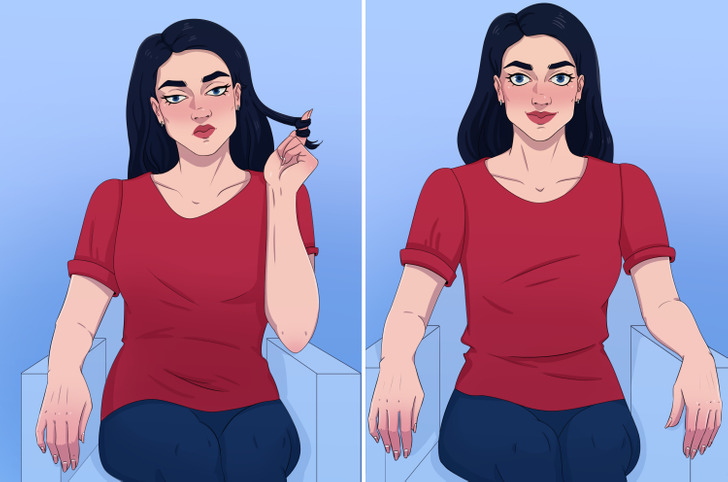
If you are used to fidgeting, imagine yourself in the place of your interlocutor and try to imagine what impression they get from your gestures. Fidgeting may often be mistaken for boredom, and people may get the impression that you aren’t interested in the conversation. You may also appear to be nervous or anxious. In addition, repetitive movements distract attention from the essence of your words and make it difficult for others to focus on the conversation.
Try to control your movements and stop shaking your feet, bouncing your knees, playing with your hair, or constantly touching your face and neck.
3. Failing to keep enough eye contact
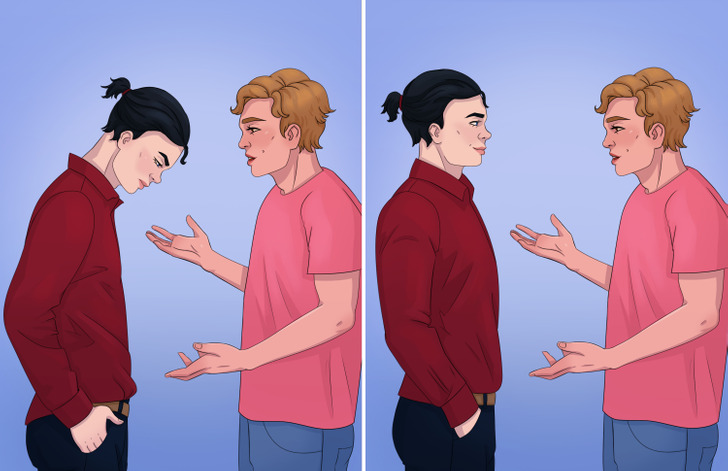
If you don’t want to look overly timid or unreliable, make sure you maintain the right level of eye contact. Looking down gives the impression of weakness and indecision. Look into somebody’s eyes during a conversation. If you are talking to several people or giving a speech in front of a crowd, try to look at each person in turn so that no one feels left out.
However, don’t look into someone’s eyes for too long. You may appear aggressive or hostile to others. It’s better to break eye contact every few seconds. The main thing is not to forget to come back. Practice making good eye contact, and you’ll look more reliable and confident.
4. Crossing your arms and/or legs
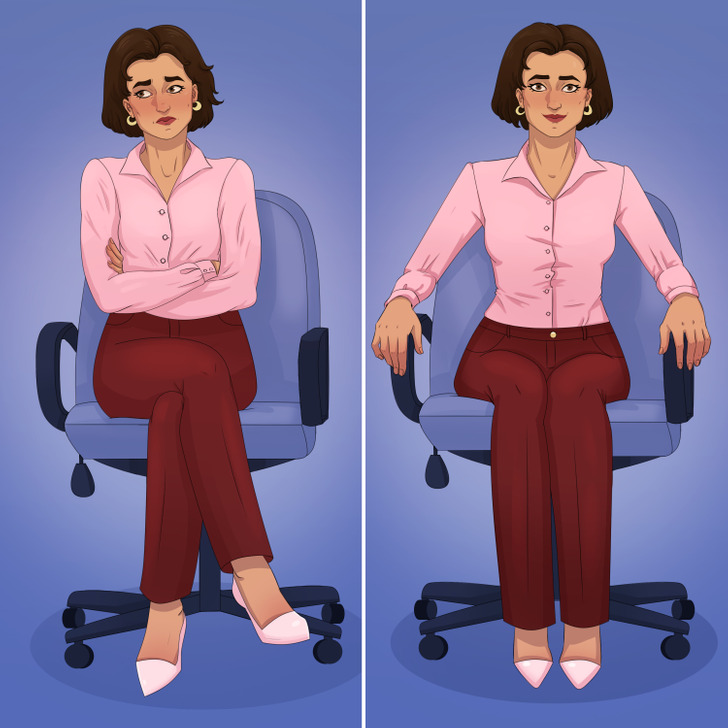
Crossed arms may show an unconscious desire to isolate yourself from the interlocutor. This position of the hands gives the impression that you don’t want to communicate, that you are rude and even hostile. Crossing the legs may be interpreted in the same way.
Let your limbs relax to give the impression of a more open person. Let your hands lie freely on the table or on the armrests. Don’t sit cross-legged if your legs are visible to others. This will show your friendliness and openness to communication.
5. Self-soothing gestures
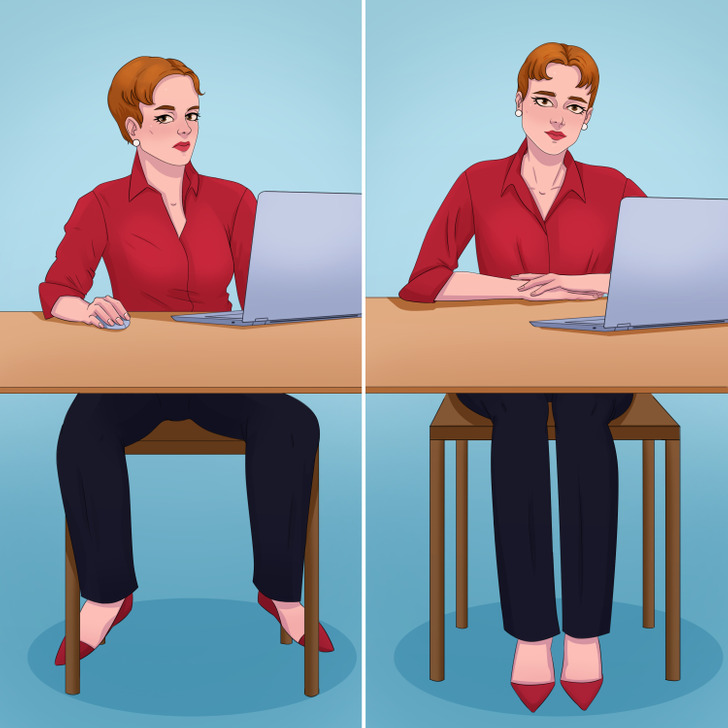
We may make various subconscious movements to calm ourselves. For example, some people feel cozier when they wrap their feet around the legs of a chair. Some stroke their thighs or straighten their clothes.
Self-soothing may help you relax, but it doesn’t look attractive from the outside. You may appear weak and unsure of yourself. To get rid of self-soothing movements, you need to find out what makes you feel uncomfortable and try to eliminate these factors.
6. Sitting on the edge of the seat
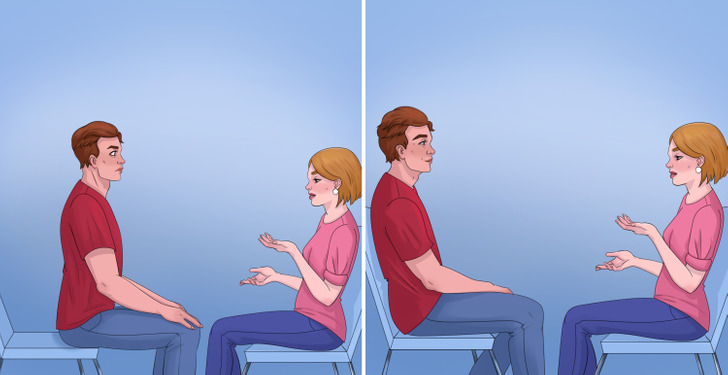
Pay attention to your actions when you are taking your seat. If you sit on the edge of a chair, you feel uncomfortable and seem insecure. Lean back and relax your body, keeping your posture straight. This will show others that you feel comfortable and confident.
7. Constantly looking at a watch or a phone
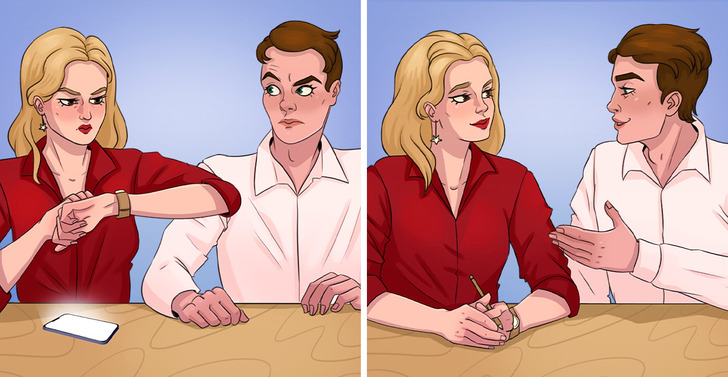
No need to constantly look at your watch or check your phone during one-on-one conversations or group meetings. People surrounding you will feel you are neglecting them and cannot wait to get on with more important things.
If you are afraid of missing an important call or message, let others know. Tell them ahead and apologize. It is also worth doing if you must leave at a certain time. Instead of checking your watch, set your alarm to vibrate.
8. Finger or foot tapping
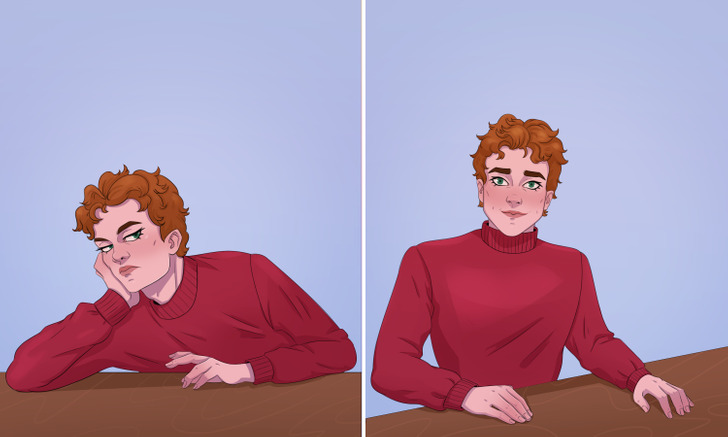
Tapping your fingers or feet will definitely cause disapproval from those around you. You’ll come across as a bored or anxious person who can’t wait to end the conversation. Also, it may seem to that you aren’t listening to the words of your conversational partner. Foot tapping may lead to being seen as nervous and insecure.
9. Frowning
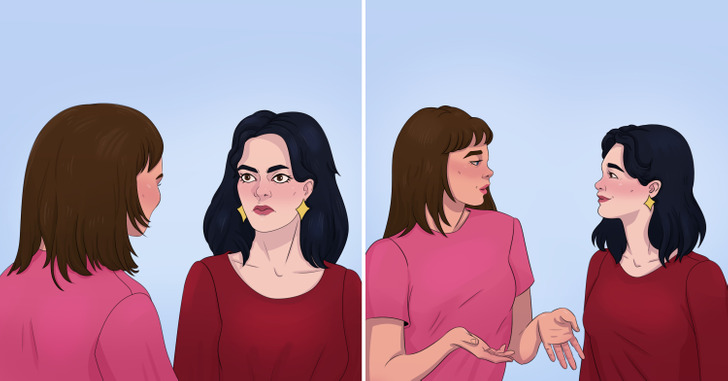
It seems obvious that it’s best not to frown in front of people you are talking to. However, people often frown unconsciously. Many do it just because they are very focused on something, and this doesn’t mean that they have negative feelings for others or are upset about something.
You need to watch your facial expressions from time to time when you are listening to others in order to stop frowning. You should also keep in mind that if someone frowns while talking to you, they aren’t necessarily annoyed or unhappy with your conversation.
10. Rolling the eyes
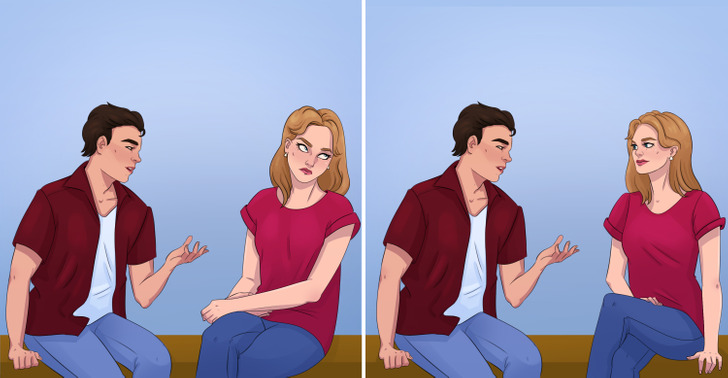
If you turn your eyes upward during a conversation, it may be regarded as a sign of disbelief, irritation, and disgust. Eye-rolling can push away even the most patient person. This habit may bring serious problems to your social life. People may think you don’t value them or their words.
What body language habits do you notice in other people? Do they annoy you?